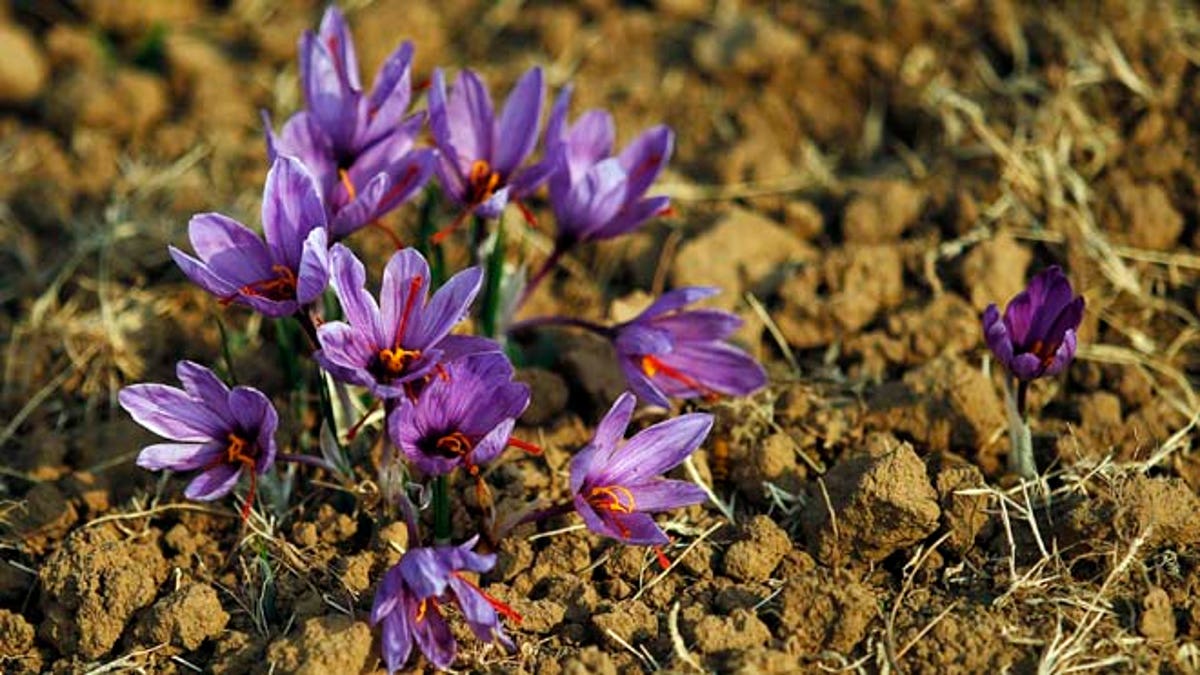
Nov. 1, 2012: Saffron flowers are seen in full bloom at a field in Pampore, 9 miles south of Srinagar. (Reuters)
Daily saffron supplements were more effective at preventing muscle weakness and pain after a bout of strenuous exercise than anti-inflammatory drugs, according to a study in the March issue of the Clinical Journal of Sport Medicine. Unexpectedly, saffron both prevented muscle pain and increased muscle strength, the research showed.
Saffron is a popular spice produced from the flower of the Crocus sativus, also called saffron crocus. Previous studies suggested saffron contains beneficial compounds called carotenoids, which are associated with cancer and heart-disease prevention, researchers said. Two saffron carotenoids, crocin and crocetin, may have anti-inflammatory and pain-relieving properties, they said.
Researchers in Iran recruited 39 men, who didn’t participate in regular vigorous exercise and were about 18 years old, for the study. Twelve men took daily capsules containing 300 milligrams of powdered saffron, one week before and three days after a strenuous exercise session. Another 12 men took indomethacin, a nonsteroidal, anti-inflammatory drug or NSAID, three times a day. Fifteen controls received placebo pills.
The exercise session consisted of four sets of 20 repetitions on a leg-press machine with a weight load equal to 80% of the subject’s maximum muscle capacity. Only the right leg was used.
The saffron group was pain-free for three days after the session. The indomethacin group experienced minor pain at 24 hours that disappeared after 72 hours. Controls reported severe muscle pain for three days, which peaked at 48 hours.
Thigh circumference, an indicator of muscle swelling, was unchanged in the saffron and indomethacin groups but increased significantly in controls after 24 hours. Muscle strength, an indicator of soreness, decreased by 20% in controls but increased by 64 percent in the saffron group. No significant changes occurred in the indomethacin group. Enzymes associated with muscle inflammation increased only in controls.
Saffron is a key ingredient in natural supplements for macular degeneration and cataracts recently approved in Canada.
Caveat: Saffron’s effects on women and highly trained athletes aren’t known.








































